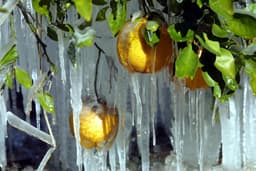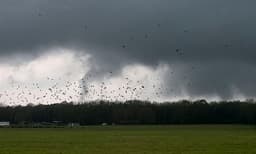Home / Weather / North Carolina Faces Warmer, Drier Winter as Drought Persists
North Carolina Faces Warmer, Drier Winter as Drought Persists
1 Nov, 2025
Summary
- NOAA forecasts warmer, drier conditions in North Carolina this winter
- Ongoing drought in the state may worsen due to lack of expected snowfall
- Lawmakers working to transition state to cleaner energy sources

According to the latest weather predictions from the National Oceanic and Atmospheric Administration (NOAA), North Carolina is likely to face warmer and drier conditions this upcoming winter season. The state, which has already been dealing with drought throughout the fall of 2025, is expected to see below-average precipitation and snowfall.
NOAA's models indicate that a weak La Niña climate pattern will continue into the winter months, bringing hotter and drier weather to the southern United States, including North Carolina. This is concerning as the state has already experienced abnormally dry conditions and drought in recent months, with the potential for further impacts on water supplies, agriculture, and wildfire risk.
In response, state lawmakers have been working to strengthen North Carolina's commitment to transitioning away from fossil fuels and towards cleaner, more sustainable energy sources. This includes the passage of House Bill 951 in 2021, which set a goal of reducing the state's heat-trapping pollution by 70% compared to 2005 levels by 2030. However, some lawmakers have sought to roll back these efforts, which the governor has vehemently opposed, citing the need to diversify the state's energy portfolio and support its growing clean energy economy.




